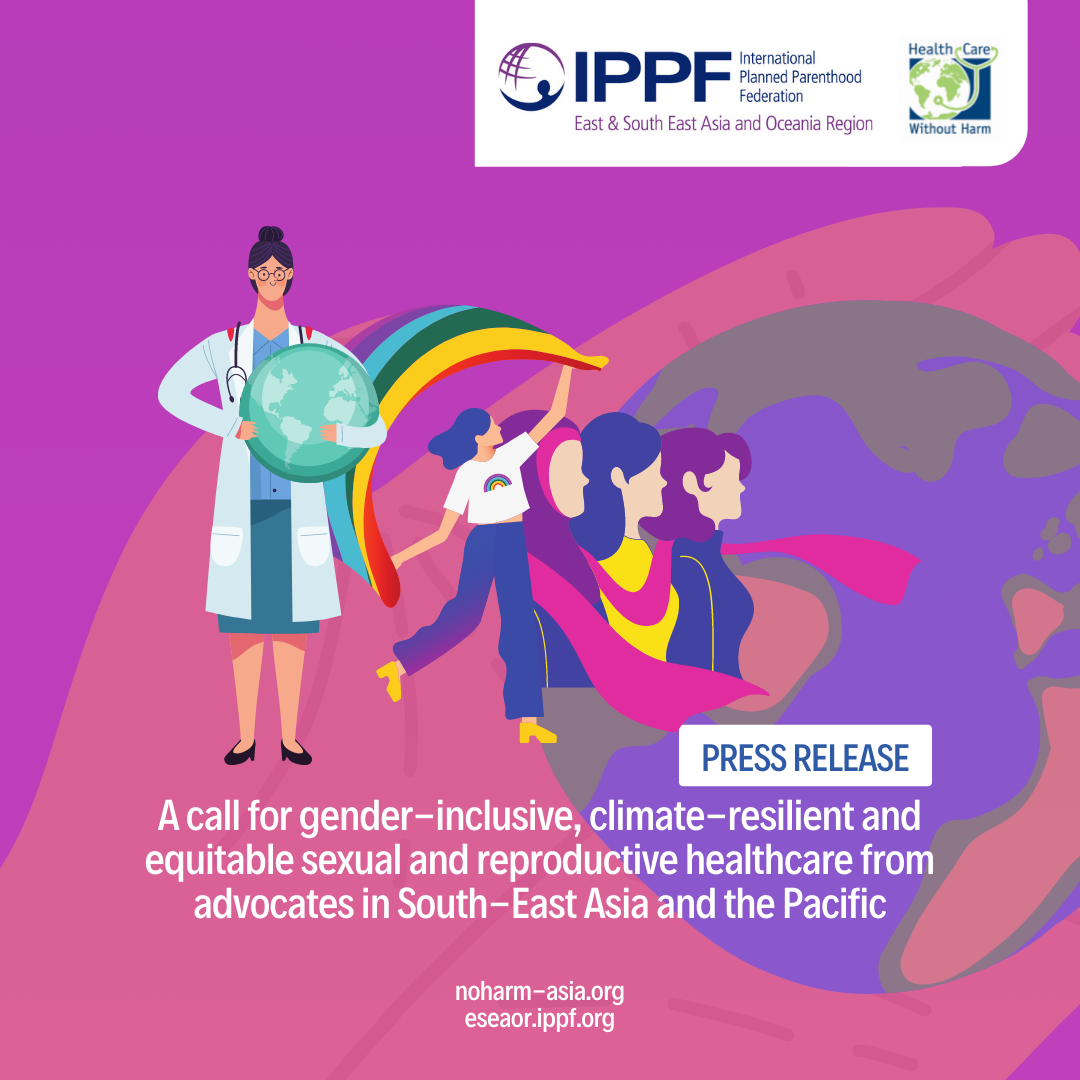23 March 2022 - On the sides of the 66th session of the Commission on the Status of Women (CSW66), Health Care Without Harm South East Asia (HCWH SEA) and the International Planned Parenthood Federation East & South East Asia and Oceania Region (IPPF ESEAOR) publicly announced a strategic partnership promoting gender-sensitive, climate-resilient women’s and girls’ health agenda across South East Asia and the Pacific.
“The climate crisis and the current COVID-19 pandemic disproportionately impact women and girls in the Asia Pacific region, aggravate their situation, restrain their capacity, and expose the weaknesses of the current economic, social and political system as reflected on their health and well-being.” expressed Ramon San Pascual, HCWH South East Asia’s Executive Director.
San Pascual adds that, “the COVID-19 pandemic has not only exposed these challenges but also multiplied the hazards faced by women and girls who often lack access to health services and are left out of formal policy and social protection measures. Even before the pandemic, gender inequity is also observed in the healthcare system as well. 70% of the workforce in the healthcare sector are women, and yet the leadership and the specialist roles are assumed by men.”
According to Tomoko Fukuda, Regional Director of IPPF ESEAOR, “In climate-disaster situations, women, girls and people with diverse Sexual Orientation, Gender Identity, Gender Expression, Sex Characteristics (SOGIESC) are among the most vulnerable not only to the social and environmental impacts of these climate-related disasters, but also from the lack of sexual and reproductive health services.”
Fukuda adds that “In the spirit of CSW66, gender equality must be at the center of solutions. Therefore, through joint project initiatives at the country level, this regional partnership aims to provide communities and health facilities with information, skills, and resources to advance the climate, gender, sexual and reproductive health and rights agenda in South East Asia and the Pacific.”
As part of the tasks ahead, both organizations are committed to exchanging knowledge and tools among respective members and partner networks. The partnership launched a pilot project in collaboration with the Reproductive Health Association of Cambodia (RHAC) and Solomon Islands Planned Parenthood Association (SIPPA) to contribute to building climate-resilient, equitable, and sustainable sexual and reproductive healthcare in both countries.
In a joint CSW66 statement released by HCWH South East Asia and IPPF ESEAOR, they call on governments in Asia Pacific to address gender inequality and recognize the important role of SRHR in reducing vulnerability to human-induced climate-related disasters and enhancing resilience to climate change. ###
